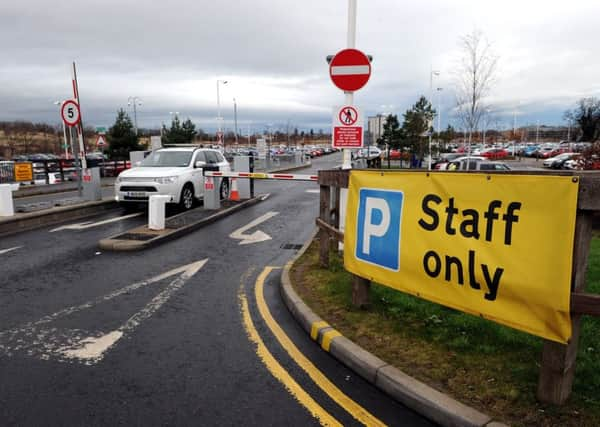Workplace parking levy a car crash waiting to happen – Brian Monteith


I can certainly attest to have said a few stupid things in my past political career, and often in public – and then wished the ground would open up and swallow me so I could hide my embarrassment. Fortunately, they were harmless, and even more importantly I was not in government – nothing I said would cost anyone anything.
Unfortunately, the same cannot be said about the SNP Finance Secretary Derek Mackay, who last week announced a new tax that would be levied on workplace parking spaces. It was all part of an agreement with the Green Party MSPs, who demanded the new tax as the price of their support to pass Mackay’s budget.
Advertisement
Hide AdAdvertisement
Hide AdThe idea is simple enough. Ostensibly it is being sold as an effort to cut down on traffic congestion and the pollution that comes with it by discouraging people from using a car to get to work. It is intended (but I wouldn’t bet my house on it) that the revenue will go towards improvements in public transport.
The amount charged will vary from council to council and be levied on employers who provide parking spaces for employees. It is then up to the employer to decide if it is to be passed on to the employee who benefits, in part or completely. The amount could possibly be as much as £500 per space or person.
The problem with the idea is that it is indiscriminate on who is liable to pay and bears no relationship to ability to pay.
Unlike a congestion charge, which puts a price on using a road and has to be paid by every motorist, this charge will only be paid by those receiving an employer’s parking space. As a result it can only make a limited impact on reducing congestion, all the more so if some classes of people, such as NHS staff, are given a 100 per cent rebate and are therefore not discouraged from car use.
Advertisement
Hide AdAdvertisement
Hide AdThe tax is grossly unfair to those who have no alternative but to use their car, maybe because there is no public transport that takes them from their home to anywhere near their work – or who do shift work that does not fit with bus or train timetables.
The tax will especially hurt people who live in rural areas. I know people who live in West Lothian who work in East Lothian or Midlothian. They might be able to get public transport to work in Edinburgh but not to other outlying districts. Transport networks are just not designed that way.
More especially unjust is how the tax will be charged equally on someone wealthy driving a luxury gas-guzzler or living on the bread line driving a second-hand jalopy.
Even if businesses choose not to pass on the car parking tax to their workers, it then becomes an overhead to be paid by them, when many companies are already seeing their business rate bills going up.
Advertisement
Hide AdAdvertisement
Hide AdThe reality is that the tax will have little impact on congestion; it is random on which drivers it will be levied upon and unjust on who is able to afford it.
The tax is a political expediency and likely to become highly unpopular as people begin to feel unfairly treated. Even the alleged benefits of new transport infrastructure will fall upon people who have not abandoned their cars or paid the tax – because they happen to live in the wrong place to take advantage of a new bridge, tram or bus service.
If the SNP wants to avoid this PR disaster waiting to happen it should abandon it before it’s too late.